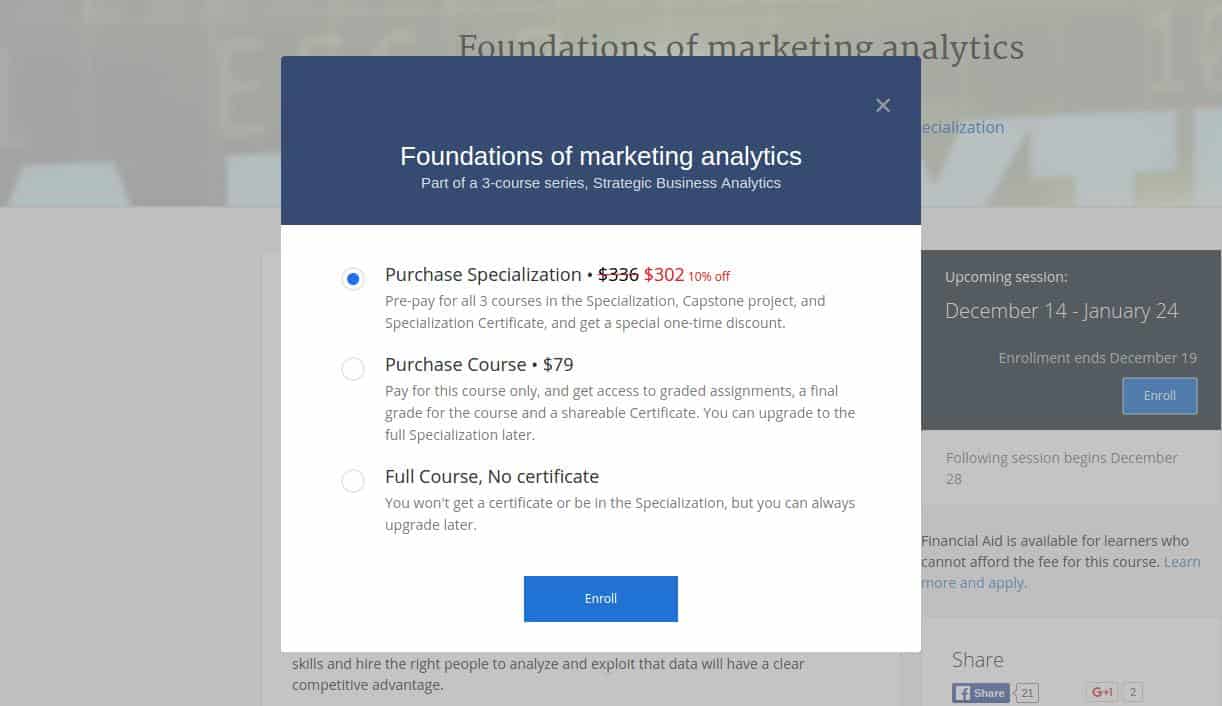Eyeing Revenue Sustainability: The Two Biggest MOOC Providers Adapt How Their Courses Work
We take a look at the latest announcements from Coursera and edX regarding their courses and pay structures. We also look at the numbers relating to MOOC providers’ revenue.
Earlier this year Udacity announced that they had reached profitability. Here are a few steps that Udacity took to reach profitability by tweaking the original MOOC formula:
- stop offering the free certificate,
- create a credential, and
- make graded assignments/projects a paid feature.
It seems that the top two MOOC providers in the world, Coursera and edX, are going along a similar path as they too strive to achieve sustainability. Both have made announcements to the effect that they will remove a key component of the MOOC experience.
edX Discontinues Free Honor Code Certificates
Earlier this week, edX announced that they will discontinue the free honor course certificate. They have said this move is aimed at strengthening their certificate program.
In the blog post announcing this change, edX assures learners that “all of edX’s high-quality educational content, assessments and forums will continue to be offered for free, but those learners who want to earn a certificate upon successful completion of the course will pay a modest fee for a verified certificate.”
Like Coursera, edX has also launched a financial assistance program for those students who can’t afford to pay for the verified certificate. But there is one big difference: Coursera’s financial assistance program provides the certificate for free, while edX’s program offers a 90% discount.
For many students, it seems the difference between the old free certificates and id-verified paid certificates is negligible, and not worth the verification upgrade. We can tell this by looking at the MOOC platform revenue data that is available.
Revenue numbers for MOOC providers are scarce, but earlier this year we noted that Johns Hopkins University made at least $3.5 million in less than a year from the sales of verified certificates for its Data Science Specialization (read reviews of the Specialization here). The nine courses in this Specialization do not offer a free certificate.
In contrast, a report released by HarvardX in November 2015 gives us an insight into the revenue earned by edX. According to the report, HarvardX has more than three million enrollments on edX — the most enrollments out of all universities on edX. Yet its revenue to date from id-verified certificates amount to only $435,000. More than 80% of the HarvardX courses offer verified certificates.
Just one specialization from Coursera makes 10x the revenue, in ten months, that the entire university of Harvard makes with 60+ courses. The numbers tell a clear story: students don’t care if the certificate is id-verified or not.
Udacity ended their certificate program in May 2014, while Coursera annnounced that they would phase out free certificates in November 2014. Maybe the reason that edX was able to put this step off was because it had another source of revenue — contracts with universities. These contracts range from being free to costing the universities millions of dollars. According to a blog post on IBL Studios, “edX has incorporated 27 edX new members in the past year – generating around $15 million.”
Coursera to put up a Paywall for Graded Assignments
In October, Coursera President and Co-Founder Daphne Koller announced that students will be asked to “pay a small fee (or apply for Coursera’s financial aid program) if you’d like to access graded assignments or earn a Course Certificate.” This change is supposed to go into effect in January 2016 for “some courses.” Students will still be able to access course videos, discussions, and ungraded assignments for free.
This announcement wasn’t well received, with a number of commenters complaining about the change on Coursera’s blog; the feedback loop of assignments is an important part of what makes a MOOC different from OpenCourseWare. According to one commenter, “For programming or computer science courses, this is like taking away 90% of the learning, since it’s impossible to passively learn watching a video without doing the assignments.”
There were also a few voices that supported this announcement. Another commenter had this to say: “One of my biggest worries with course providers like Coursera is that, by continuing these expensive services for free, they will be unsustainable, and go away. Coursera has changed my life — changed the way I learn, made me realize I DON’T need to spend $30K on a graduate degree, and helped me find a new job. I am so glad that Coursera is finding a way to sustain themselves for the future.”
Those who cannot afford to pay the fee can apply for financial aid. So far Coursera has provided over 100,000 learners with financial aid.








Candy Lu
i like MOOC, it enlarge my view. i enroll philosophy course yesterday, with a few money but i just realized that i have enter a very beautiful and large garden, thanks to MOOC, i will start my learning journey with a joyful mood, and last forever, wish me lucky!